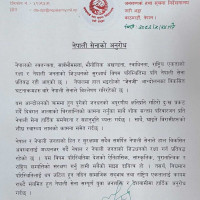- Wednesday, 10 September 2025
Healing After Narcissism
There is a particular kind of pain that comes from being in a relationship with someone who exhibits high levels of narcissism. It’s not just heartbreak. It’s not just disillusionment. It’s the erosion of something even more foundational—your sense of reality.
Gaslighting, a hallmark of narcissistic behavior, is a corrosive, disorienting experience. You’re not just doubting what happened—you’re doubting whether anything happened. You start to feel as though your map of the world is off. As though your GPS won’t load. As if you’re crazy. And that fear—of not being able to trust your own perception—triggers a primal terror in us because if we can’t trust our own perception of reality, we can’t keep ourselves safe.
I’ve heard countless people—clients, friends, readers—tell themselves, “Maybe I’m too sensitive.” And when they finally stumble across the label—narcissist—it’s like oxygen rushing into starved lungs. Finally. A word. A research-backed explanation. A bucket to place it all in. A way to say: I wasn’t crazy. That actually happened. I can trust myself.
This validation is crucial if we are to escape abuse and eventually heal. But I believe we are at a moment in culture and clinical care where we have to go a step further. Because the same word that gave us oxygen can also start to choke our empathy. When we label someone a narcissist, we’re often not talking about their behavior—we’re talking about their entire identity. We’re reducing the totality of their personhood into a single trait. And here’s the danger: When we dehumanize someone, it becomes easier to justify cruelty. We lose the capacity for perspective-taking. We begin to behave, ironically, in ways that mirror the very traits of those hurting us. Harsh. Dismissive. Uncompromising.
And that’s not just a poetic warning. Research suggests that long-term relationships with narcissists can change your attachment style. We don’t just leave wounded—we leave transformed, often into more anxious, reactive versions of ourselves. The trauma doesn’t end when the relationship ends. It lingers in how we trust, how we relate, and how we label and interpret others’ behaviours. Without realizing it, to protect ourselves, we can become defensive, avoidant, or controlling—we begin to cope in the same ways those we call narcissists cope with their own wounds.
If we’re not careful, we end up passing the same emotional wound forward. We become like the narcissist—not immediately in character, but in behaviour. But behaviour over time becomes habit. Habit, over time, becomes mindset. And mindset, over time, becomes part of our personality. And our personalities direct our behaviours, and the cycle continues.
Which is why I am calling for a shift—not just in how we speak, but in how we conceptualize narcissism altogether. Instead of saying, “My ex is a narcissist,” what if we said, “My ex had high levels of narcissism in their behaviour”? Yes, it’s a mouthful. But words matter. Language shapes mindset. And mindset shapes behaviour. And our behaviours dictate the kind of world we’re all living in. If we can practice using language that points to behaviour rather than identity, we protect ourselves and our moral compass. We get to name what happened, clearly and accurately—without dehumanizing another person.
And no, this doesn’t mean excusing abuse or tolerating mistreatment. It doesn’t mean staying in unsafe relationships. It means we can hold two truths at once: This person harmed me, and they are still a person. We can both protect ourselves and resist cruelty. We can validate our experience and keep our hearts from hardening. We must continue to name narcissism clearly. We must study it, teach about it, and help clients set firm, necessary boundaries. But let’s also pause before encouraging labels that flatten the complexity of another human being. Let us ask ourselves: Am I empowering my client, or fueling their resentment? Am I offering clarity, or offering a license to hate? Am I helping them protect their integrity—not just their peace?
When we validate clients without hardening their hearts, we’re doing something radical: We’re breaking the cycle. We’ve seen what happens when name-calling becomes normalized. The German propaganda machine, before it committed its most horrific acts, began with name-calling. With words. With labels. Repeated enough, those labels dehumanised entire groups, priming citizens to commit unspeakable acts against their Jewish neighbours. Once we believe that someone is less than human, the door to cruelty opens wide.
Words aren’t just words. They are tools. They are weapons. They are mirrors. If we can help clients see the behavior as harmful without turning the person into a monster, we’ve given them the most powerful gift: the ability to act with strength and dignity. That kind of empowerment does not corrode the soul.
-Psychology Today
















